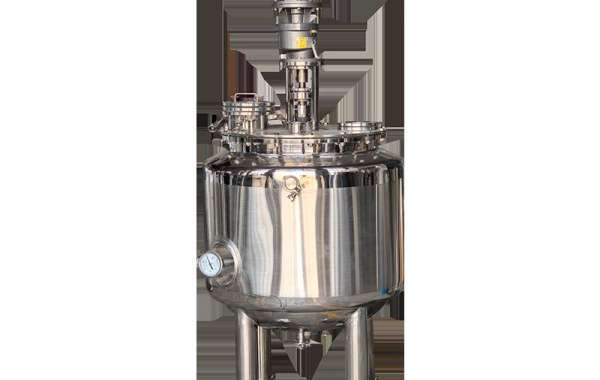Reaction kettles serve as workhorses in the chemical manufacturing industry. They are used for a wide array of synthesis processes, from producing simple compounds to complex polymers. In a chemical plant, a reaction kettle might be used for esterification, polymerization, or hydrolysis. The ability of the reaction kettle to handle corrosive acids, bases, and solvents makes it indispensable. Batch processes in a reaction kettle allow for flexibility in production schedules, enabling manufacturers to produce different products in the same reaction kettle with proper cleaning between batches.
The pharmaceutical industry relies heavily on reaction kettles for the production of active pharmaceutical ingredients (APIs). In this controlled environment, a reaction kettle must meet stringent hygiene standards, often requiring electropolished interiors and clean-in-place (CIP) systems. The precise temperature and agitation control offered by a modern reaction kettle is critical for complex multi-step syntheses where reaction yields and product purity are paramount. The sealed nature of a pharmaceutical-grade reaction kettle also helps contain potent compounds and maintain a sterile processing environment when necessary.
In the food and beverage sector, reaction kettles are used for cooking, mixing, and preparing various products. A large reaction kettle might be used in a confectionery factory to cook sugar syrups, or in a sauce factory to prepare emulsified products like mayonnaise. The heating and cooling capabilities of the reaction kettle allow for precise control over cooking times and temperatures, which affects flavor, texture, and shelf-life. Sanitary design, with smooth surfaces and easy-to-clean components, is a critical feature of any reaction kettle used in food production.
Beyond these core industries, reaction kettles find use in cosmetics, paints, adhesives, and biofuel production. The fundamental principle remains the same: the reaction kettle provides a controlled environment for combining and processing materials. The scale of the reaction kettle can vary dramatically, from small laboratory units of a few liters for research and development to massive production-scale reaction kettles holding thousands of liters. The selection of a reaction kettle for any given application depends on the chemical and physical nature of the materials, the required operating conditions, and the desired production volume.







